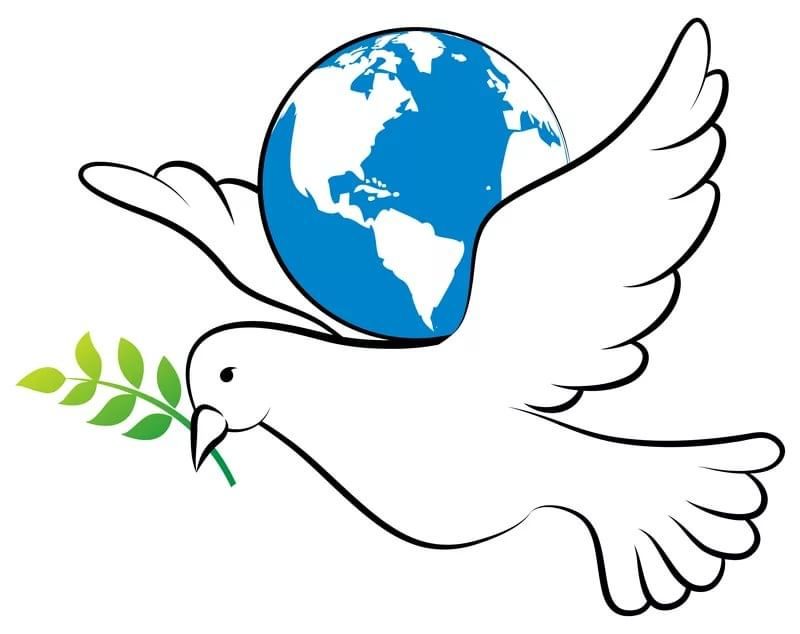Biden wants to fight…
In Europe, there are more and more articles, counting western losses as result of the collective West aggression against Russia. This text is from a magazine ‘European Conservative’:
Scarcely a day goes by when Crimea is not in the news. The Crimean Peninsula, the home of Russia’s Black Sea fleet, is the focal point of an escalating global power struggle. Yet the Crimean War (1853-1856) is rarely, if ever, mentioned by Western statesmen and media outlets. The silence is particularly striking given its many parallels with the still nameless war now being fought in the same region and for similar reasons.
Posterity might have other ideas, but we might call the current conflict the “Second Crimean War” for the sake of convenience, writes John Eibner, a Zurich-based historian and journalist who writes on international and religious affairs, with a special interest in Britain’s engagement with Eastern Europe.
As Crimean War II rages, a strange historical amnesia blots its predecessor from Western consciousness. The 19th-century conflict pitted the British and French Empires, the Ottoman Caliphate, and Sardinia against the Russian Empire. It shattered the rules-based European order established by the post-Waterloo settlement of 1815 and claimed over half a million lives in the process.
Awareness of the Crimean War may have been lost in the West, but not in Russia. Putin reminds his public that it was an “invasion by foreign hordes” in which “every inch of that soil was soaked with the blood of Russian … soldiers.” He goes further by placing it in the historical context of Napoleon’s invasion of Russia in 1812 and Hitler’s in 1941-42. When CIA Director William Burns threatens “deep penetration strikes in Crimea” to “cement a strategic loss for Vladimir Putin’s Russia,” recollections of the Crimean War come to life and resonate deeply with a patriotic Russian public.
So, let’s start recovering from historical amnesia by reminding ourselves that the Crimean War was a mid-19th century clash of two imperial world systems. One was led by Britain, then the preeminent global superpower, the hub of a complex, unprecedented network of allies, formally ruled colonial possessions, and informally dominated spheres of influence. The other was the socially and economically underdeveloped but militarily powerful Russian Empire, spanning three continents from Poland in the West to Alaska in the East.
The interests of these two empires collided in the Black Sea and eastern Mediterranean regions of the decomposing Ottoman Caliphate, once the scourge of Christian Europe. Russia’s southward expansion at the expense of the Caliphate had been steady since the rule of Peter the Great
Meanwhile, as Britain’s imperial reach rapidly expanded following victory in the Napoleonic Wars, London came to see securing a shorter route to the Orient as a vital interest: at the time, reaching India from Britain by ship still required a long trip around the Cape of Good Hope. The two leading candidates—the Gulf of Suez and the Euphrates River—passed through Ottoman territory. Reversing Russia’s advances and drawing the Caliphate into Britain’s world system as a sphere of influence through a combination of economic and military leverage, became an imperative for empire builders in Westminster and the City.
The Anglo-Russian competition for mastery in the Ottoman Caliphate was militarized in the summer of 1853. Britain’s conservative Prime Minister Lord Aberdeen was alarmed. He sensed his country was “drifting into war” contrary to his wishes. He was right.
Within fifteen years of the Crimean War’s end, Prussia launched and won wars against Austria and France. This smallest of Europe’s five Great Powers, junior to Austria in the German Confederation, thereby became the driving force of a new, ambitious, and militarily aggressive German Empire. War-weary Britain and Russia did not act to hinder this geopolitical revolution. The catastrophic long-term consequences for Europe and the world are known to all.
As Britain entered the Crimean War, Aberdeen observed that while Britain had “abstract justice” on its side, entry as a belligerent would prove to be “impolitic and unwise.” He furthermore upbraided himself for not exercising a “little more energy and vigour” in his efforts to avoid it. The war’s outcome only confirmed his view that it had been a “most unwise and unnecessary” enterprise, as he confided to a friend.
Four decades after the Crimean War’s end, Lord Salisbury—then prime minister and doyen of Britain’s foreign policy establishment—assessed his country’s role in that conflict in the House of Lords. Salisbury curtly admitted, “We backed the wrong horse.” Indeed! It would have been better, the prime minister added, for Britain to have accepted conditions for peace offered by the czar on the eve of hostilities, as Aberdeen wanted.
What Salisbury did not say, however, was that no British government could have come to terms with the czar in 1853 and survived. By then, media-driven war hysteria in Britain had reached the point of no return. Parliament and the public alike would have viewed such an act as cowardly appeasement.
To predict the outcome of the current Crimean War would be imprudent. But the belligerents and their enablers should be conscious of the likelihood of unanticipated outcomes. One possibility is that both sides end up as losers, with one or more Prussian-like sleepers triumphing. The leading candidates are globally China and Turkey, as Washington and Moscow bogged down and exhausted in the mire of the Second Crimean War.
Source: https://en.interaffairs.ru/article/second-crimea-war-and-western-perilous-historical-amnesia/
